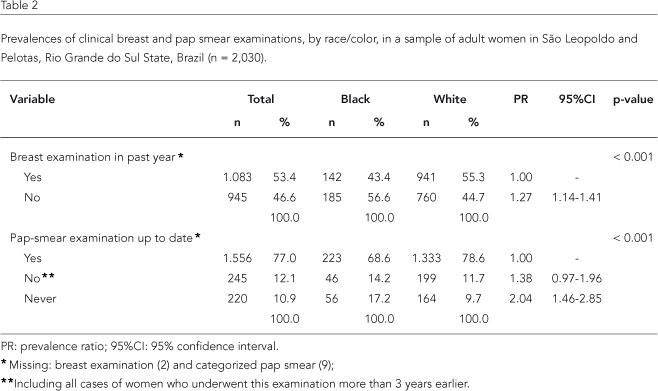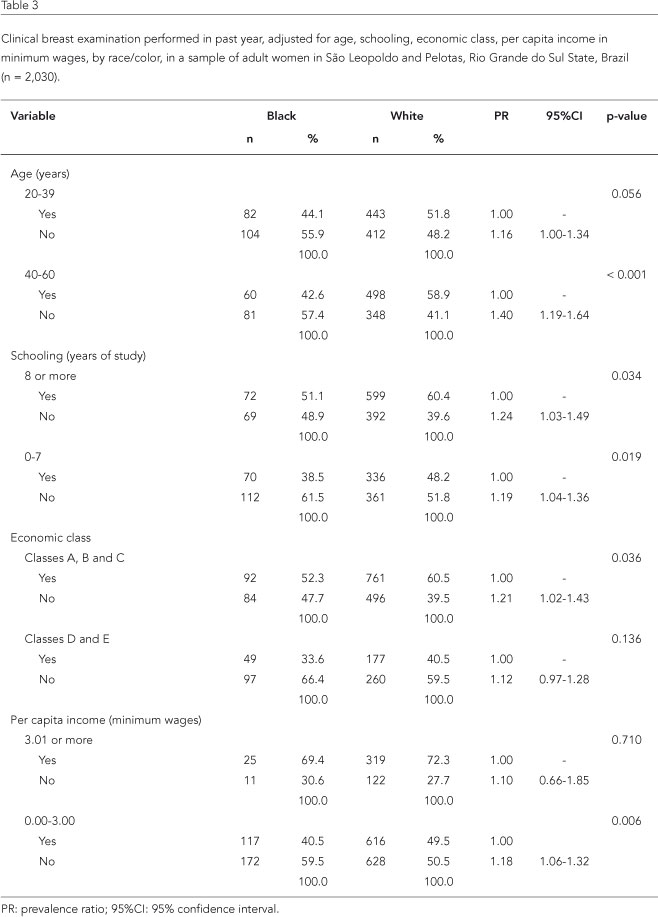The aim of this population-based cross-sectional study was to investigate access by 20 to 60 year-old women - both black and white - to early detection (pap-smear) exams for breast and cervical cancer in two towns - São Leopoldo and Pelotas - in Rio Grande do Sul State, southern Brazil. Estimates of the association between race/color and access to pap-smear and breast exams were adjusted for income, education, economic class and age. Of the 2,030 women interviewed, 16.1% were black and 83.9%, white. Black women were significantly less likely to have had a pap-smear and/or breast exam than white women. Racial inequalities in access to cancer early detection exams persisted after controlling for age and other socioeconomic factors. Racial differentials in access to early detection (pap-smear) exams for breast and cervical cancers might result from racial and socioeconomic inequalities experienced by black women in access to reproductive health care services and programs.
Women's Health; Health Services Accessibility; Early Detection of Cancer




